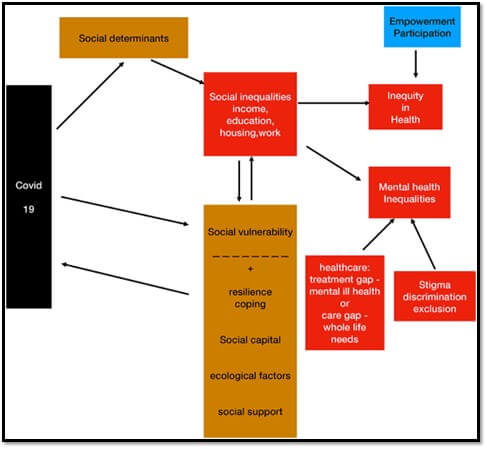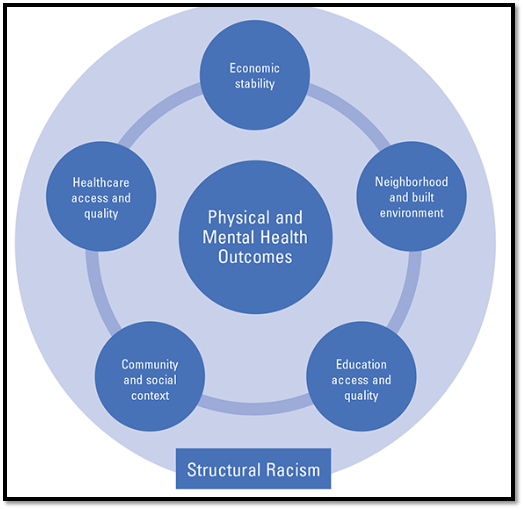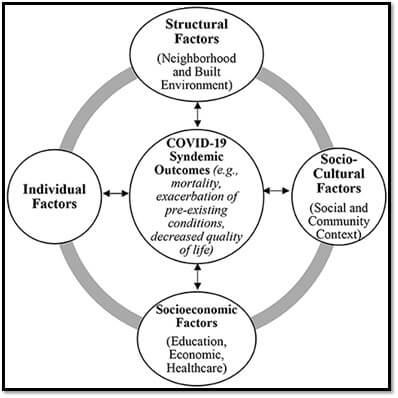- Empowering and Engaging Marginalized Groups
- 1. LiteratureReview
- 1.1 Introduction: Empowering And Engaging Marginalized Groups
- 1.2 Empowering Vulnerable and Marginalized Populations through Community
- 1.3 The functions of the State in Empowering Poor and Excluded Groups and Individuals
- 1.4 Empowerment, participation, and capabilities core lessons and future challenges in Covid-19
- 1.5 Literature Gap
- 1.6 Summary
- 2. Strategic Essay
- Introduction
- Discussion
Empowering and Engaging Marginalized Groups
Need assignment writing help in the UK? Native Assignment Help is your ultimate solution. Our seasoned writers possess the expertise to craft impeccable assignments that meet the highest academic standards, guaranteeing your success.
1. LiteratureReview
1.1 Introduction: Empowering And Engaging Marginalized Groups
The empowerment of managerial groups has been empowered by the community workflows that can develop the cultures of identification in a sustainable manner. In this regard, the rates of social participation as well as the social movements have been making community workflows activities that have developed the cultures of community participation and enhanced the rates of social movements. The marginalised groups have targeted the rates by combining the effects of the marginalised cultures with developing the rates of learning experiences. Thus, focusing on the different kinds of attributes, such as start attention, as well as developments of community cultures, has enhanced the rates of customer satisfaction. The expansions of the individual's choices and capabilities have been causing a deprivation, and those who participated in the deprivations by endorsing the decision-making cultures. The rates of development and succession can also be easily accessed.
1.2 Empowering Vulnerable and Marginalized Populations through Community
As per the view of Jawabreh et al. (2022), marginalized individuals have been taking active functions in managing and running community business organisations that can enhance the rates of skills. The continuous rates of development capabilities, as well as negotiations of skills, have been making ability of obtained authority through generations of standardisation rates. Thus, the issues related to problem-solving ability have been effectively developed by offering with supporting rates and teaching with the children. Besides that, the creation of enabling environmental structures has been making an establishment that can provide a stronger range of networking abilities. The implementation of social cultures has been enhancing the rates of safety and security that can be provided with the best services among the customers with the generations of working capitalist rates by the vulnerable groups effectively. The proportions of the "Theories of marginalised" have a positive range of effects and make a neoclassical theory by making a cultural resistance with individualism. The four kinds of aspects related to social, educational, political, and organisations have created a positive range of effects through making an implication of generating the ultimate ranges of future growth rates.

Figure 1: Mental Health and Social Vulnerability
However, Lei et al. (2022) have argued that the usage of C-BED techniques has enhanced the rates of learning abilities as well as making an application with the generations of the participant's rates. In addition, the rates of problem-solving ability can be also focused on the different kinds of attributes related to marketing as well as training abilities rates. By providing training facilities among the workers the rates of development facilities can also be effectively enhanced that can be making evolving the cultures of interest rates and organising empowerment with a wider range of customers in a sustainable manner. In this regard, the rates of business development have also targeted the wider range of people that can be making an effective range of designed modules for considering the wider ranges of aspects related to areas of rights as well as organising by attracting the wider range of people sustainably. The rates of development can also be making a local based community association that can enhance the rates of ultimate ranges of targeted consumers by making an effective range of implementations with formulated about the strategic rates and new ranges of skills rates. In addition, the rates of practised skills as well as the chances of political areas have been making a wider range of developments with managing the community infrastructures and making an effective range of decision-making processes with supported by the research procedures.
1.3 The functions of the State in Empowering Poor and Excluded Groups and Individuals
As per the view of Gerdt et al. (2019), public education has been making a discriminatory action that can be generated about the values as well as making equity with the improvements of building capacity rates and support-based organisations. The guaranteeing cultures have been also making justice by promoting the norms as well as enhancing the rates of servicing cultures by making an interpretation of the performance appraisals with excluding individuals and groups. In addition, it has also been focused on the differentiation of attributes related to urban areas that can be taken the comprehensive approaches by empowering the rates of communities with setting up viable enterprise cultures. Besides that, the rates of implications have also diminished the rates of the building of vocational capabilities as well as generating the assets by making an individual's forks with making education of the community infrastructures modules. Thus, the rates of providing skills have been making a networking culture with increased rates of resource developments by providing the training opportunities implications. The adaptations of the "Perkins and Zimmerman Theory" have been made empowered through generations of interventions by enhancing the rates of wellness and generating the issues through making collaboration.

Figure 2: Mental and Physical Health
However, Parvez (2020) has argued that community empowerment has been considered a procedure that can be enabling cultures the increased rates of standardisation and make a healthy culture by making diversification of the differentiation of attributes related to Social, Economic, Psychological, Political, and Educational cultures by making a prominent culture with generations of ideas creations. The multiple kinds of attributes such as shared decision-making cultures and setting up responsibilities have generated equality by making a supporting rate with making enabled culture of the assessment modules such as personal health records effectively. They showed up of implications can be generated about the development of appreciation and making a positive culture through the collection of positive workforce abilities in a sustainable manner. As per the view of Gerdt et al. (2019), the delegations of working cultures, as well as the responsibility, have been setting up the possible expectations and working cultures through enhanced rates of accurate ranges of resources by focusing on the results and the process by making innovations rates by specialised the cultures of projects rates. The creation of job opportunities has been making beneficial on the side through enhancing rates of awareness by making a positive rate of cultural attributes listed with the developments of the demonstrations rates in sustainably.
1.4 Empowerment, participation, and capabilities core lessons and future challenges in Covid-19
As stated by Chadee et al. (2021), the employer's participation has been making an effective range of decision-making procedures that can be sharing the controlled abilities with allocated cultures of resources and sharing the capitalisation rates. The maintenance of the capability approaches has been making operational integrations can be generation bout the differentiation of attributes related to safeguarding, empowerment, and accountability rates. Therefore, the chances of making operational cultures as well as deeply complementary cultures have enhanced the rates of power relations through structures about the accurate infrastructures rates. The adaptations of the capability approaches have been made entailed generations of the claiming rates and achieving well-being by enhancing the rates of functioning capabilities as well as understanding rates in a sustainable manner.

Figure 3: Factors affected by COVID-19 situations in marginalised populations
However, Jacobs and Wyk (2019) have argued that the rates of environments can also focus on the multiple kinds of aspects related to rates of integrity. In addition, the rates of controlled abilities as well as the sharing of thoughts have been making an affiliation of control over the environments of making an emotional culture. The rates of implications as well as the rates of controlled ability can be making a self-assessment need with generations of empowerment criteria determined about the social actions and interpretations. The adaptations of "Empowerment Theory" have been seeking empowered cultures and gaining the personality by striving to identify their meeting needs and future implications. As a result, the rates of ultimate needs with accessing reliable information can be influenced by the development of the multiple kinds of attributes related to assessments of information, supports, and resources with learning abilities. Thus, the rates of integral cultures have been increasing with the adoption of the necessary actions to making a workplace culture and an autonomous culture in a sustainable manner.
1.5 Literature Gap
Parvez (2020), has not discussed empowerment, future issues, participation, and collaborations in their research work with provided valuable information. However, Gerdt et al. (2019) have not analysed the functions of empowering excluded groups and have not been interlinked with the theoretical perspectives in their journal. Jacobs and Wyk (2019), have not analysed the topic of empowering marginalized and vulnerable populations through Community in their research work. Therefore, the researchers have improved to breach the existing literature gaps in their particular area.
1.6 Summary
Throughout the above-depicted analysis, it has been interpreted that the analysis has been making specific interpretations of the improvements in engaging empowering and marginalized groups. In addition, the improvements of authoritative experts have been making an effective range of cultures through generations of future perspectives instead of the usage of the knowledge rates after identification of the problematic approaches. The rates of professionalism as well as the proportions of the sociological cultures have been extended about the operations and making enhanced with the understanding rates and fundamental cultures. In addition, the empowerment procedures have been making a social interpretation throughout determined the ultimate cultures of making a positive range of social environments in a sustainable manner.
2. Strategic Essay
Introduction
The improvements of the casework and the mutual support have been making n accurate range of identifications that can be generated about the campaigns through enhanced rates of the community by making social movements and rates of participation cultures. The continuous rates of development activities can be created a negative range of effects by generating the experienced rate as well as making an effective range of implications rates. In addition, it has also been directed at the expansion of choices with improved cultures of real-time opportunities through enhancing the rates of effective greater ranges capabilities through vulnerable the individual's life. The interpretations of the sharing rates can be also focused on political empowerment and making effective participation through affected with the standardisation of life and enhancements of capabilities. The effective ranges of team building ability, as well as the potential factors, have been made considering the differentiations of cultures related to trauma, discrimination, and exclusions rates effectively.
Discussion
The theoretical perspective of empowering and engaging marginalisation groups
Empowering and engaging marginalised groups can be considered from the review point of different perspectives depending upon the specific approaches of the interventions. Some of the theoretical perspectives are stated below:
- Social justice perspective: Under this perspective, the need for addressing systematic inequalities ands injustices are emphasised. As opined byHailes et al. (2021),the main aim of this perspective is to focus on the changing structures and institutions that give rise to inequality and tend to create an equitable society for all.
- Human rights perspective: Under this perspective, the viewpoint of the marginalised groups evaluated that are denied due to discrimination and oppression (Kempin Reuter, 2019). This perspective involves empowering marginalised groups by ensuring that their rights will be respected, protected and also be fulfilled.
- Critical pedagogy perspective: Under this perspective, the development of critical consciousness and challenging dominant ideologies and power structures takes place by emphasizing the role of education in empowering marginalised groups (Mason et al. 2019). The main focus is to provide a participative and inclusive educational system that will help in encouraging critical thinking and social change.
- Feminist perspective: Under this perspective, the creation of marginalisation and exclusion takes place by highlighting the convergence of gender, race and class (Zhu, 2019). This perspective involves addressing multiple forms of oppression affecting the lives of the people working in an equitable society of workforce.
- Community development perspective: Under this perspective, the work is done with the community to identify the needs and preferences of their own for framing plans as solutions to the problems analysed. As opined by Harrison et al. (2019), the main focus is to build the capacity of the marginalised communities to incur changes in their own development strategies to have solutions for their problems.
Needs and challenges of the marginalised group
The marginalised groups tend to face different types of needs and challenges that may vary depending on their needs and preferences. These groups have limited access to opportunities offered in the economy. This may result in poverty, underemployment and low financial stability. As opined by Mann andMatzner (2019), these situations take place due to the political factors that have eliminated them from the formal labour market. These groups are facing discrimination and exclusion based on that their opportunity to access education, employment, and participation in social affairs is limited. Furthermore, this is contributing to the feelings incurred by marginalized groups into isolation and stigma. They are also facing limits to the facilities that they are liable to get from the hospitals as health care services. These problems are arising as the marginalised groups are the ones who are illiterate and are not able to understand the human rights that are equal for every person, including these groups. This has provided an opportunity for society to boycott these groups from social affairs.
Due to illiteracy, they are unable to take action for their needs and requirements and lead a challenging life ahead. They are dealing with different types of problems, including physical violence, sexual harassment, hate crimes and insecurity, as they are not aware of their human rights. As opined by Omerov et al. (2020), there is a need to be aware of these groups regarding their ability to take active participation in social affairs and take a stand by framing their own decisions and implementing those in their lives to lead a better life ahead. Apart from this, environmental degradation and extreme climatic conditions also affect the lives of the people belonging to these groups. Most of the time, it can be seen that poor people are living beside the running road in the open sky. This situation is the outcome of the climatic changes that take place in the world. Furthermore, they are not having access to legal securities, as they are the most neglected creatures of society. As a result, they are not able to get justice for the misfortune that happened to them whether it is due to climate change or the other literate people in society. These individuals need to be aware of the facts and conceptions of their legal and human rights to take a stand in a society of their own.
Strategies implemented for empowering and engaging marginalised groups
The strategies that can be implemented for empowering and engaging marginalized groups are stated below:
- Community organising and advocacy: The first step that can be taken towards empowering marginalized society is to seek help from community organising and advocacy efforts (Nomm et al. 2020). This will help in building their power in unity and provide them with the opportunity to raise their voice in the decision-making process. This may include support from established community-based organisations by providing leadership training and mentorship to enhance their skill set and boost communication so that they will be able to have access to employment.
- Capacity building and skill development: These programs can help these groups to build their knowledge and skills to make proper use of resources. This will help them to become effective and efficient in their work that will increase their chances of being employed (Holland et al. 2019). This will ultimately reduce the poverty level and helps maintain an equitable society with equal rights and opportunities for these marginalised groups.
- Access to resources and opportunities: This strategy is taken into consideration to provide the marginalised group training for overcoming the barriers so as to take active participation in economic and social affairs. As opined by Jiao et al. (2021), this will help them analyse their own capacity and skill set that they can use in their own way to develop a business proposal of their own.
- Education and raising awareness: Education is the most important asset that if acquired by an individual will build a support system of their own as they will be aware of the facts and figures that will take place in society. Furthermore, education is needed to understand the matter of spreading awareness through an illiterate person can understand it also. As stated by Phillipson et al. (2019), the literate better can understand the impacts and benefits of awareness as they can analyse the exact time of implementing the knowledge to have a better result.
- Legal aid and protection: Legal aid and protection is a measure that is a requirement for every individual to survive in a discriminative society (Teufel et al. 2021). This strategy involves providing legal aid and protection to those who are in need by opening small clinics around the society from where help can be taken at any point in time. This will reduce the increasing death rates to a certain amount as the people will be able to get immediate help.
- Policy and institutional change: Having an equitable society is creating a positive impact on the economy as a whole as it is helping to increase the employment rates by providing education to the needy ones, helping individuals to survive in a discriminatory society with the help of legal aid, etc (Keohane, 2019). This strategy involves advocating for change in policies and institutional matters to have equality in all aspects.
- Collaborative partnership: This strategy deals with the collaboration measures accepted to have collaboration between the marginalised group and any NGO, government agencies and so on (Bustinza et al. 2021). The strategic implementation helps in addressing the needs and challenges faced by the marginalised society by promoting economic development. This also improves healthcare services and education facilities.
Evaluating the potential effectiveness of the strategy
Education and skill-building
In the process of empowering and engaging, the marginalised individual, their education and skill, set needs to be developed so that they can have access to decision-making in society. This leads to improved employability as the individuals are able to enhance their knowledge and skills that are required to access high pay scales in different job opportunities as per their preference. This will provide them with the lifestyle that they are willing to have in their life (Davis andMcCoy, 2019). Once they were able to earn a living, they will be able to have access to better healthcare services. The education will further increase their morale and boost their confidence level so that they will be able to stand in a similar position in society to other people. They will also generate problem-solving ability, as they will be able to acquire critical thinking skills.
Access to resources
Having access to resources helps in improving economic and social outcomes. It also helps in improving the living standard of individuals. Furthermore, it will help in increasing economic opportunities by providing the individuals and their business idea with the capital required by them for the startup of their business. This will again lead to an increase the job opportunities for the needy ones (Elmore et al. 2019). Similarly having access to educational resources that include books, technology, and other study materials can help in increasing the literacy level of a particular country or state or economy or society. Access to resources such as renewable energy sources will lead to a sustainable environment ahead as a result, the life expectancy rates will increase due to less pollution.
Representation and participation
Representation and participation have a positive impact on significant improvements in social and political outcomes. This will help in increasing the political engagement of the individuals to have access to the decision-making process. This in turn helps the individuals to raise their voices against any violence or misbehaviour that happened to them as their voice will be taken into account while framing the policy. This will also build the trust of the individual in the government with a demonstration of transparency and responsiveness. It will also help in reducing social isolation with an increase in the sense of belongingness among the people of diverse community groups.
Support networks
Support networks help individuals during difficult times in their lives. This might help to understand the emotional need to provide them with the exact support they are liable to get. Furthermore, people having access to strong support networks are more resilient to facing a challenge by reducing their stress levels. Apart from this, they can brainstorm solutions to problems and will be able to serve the needy with their help in the health sector. The support networks also provide access to resources that can help overcome the barriers that may arise in the future as a challenge. An effective tool helps individuals in improving their creative thinking skills.
Raising awareness
Raising awareness promotes changes that take place in social affairs and can be effective in increasing the knowledge and developing the skills of an individual to deal with the matters of society. It also helps individuals to indulge changes in their behavioural attitude to merge their thoughts with others. This will lead to a positive impact on the sustainable economy. The awareness must be raised focusing on the impacts that are triggering the proper functioning of the work in a marginalised group in society. The awareness must be in favour of the individuals who do not have access to education, resources or employment so that they will be able to gather knowledge regarding the matters. It is mandatory to have advocatory support in raising awareness to bring a significant change in the economy as it is not possible for several people alone to contribute to the significant change. The advocatory support in spreading awareness will help the action implemented to last longer in the economy. All these factors contribute to the potential effectiveness of the strategy implemented.
Conclusion
From the above-mentioned analysis, it can state that the rates of organised groups have been focused on the different kinds of attributes related to physical, mental as well as emotional cultures that can be created a negative range of effects. In addition, the multiple kinds of strategic attributes such as self-control ability, communications skills, interpersonal ability, connectivity, decision-making approaches, a moral outlook, and intellectual activities have also been making a positive range of aspects through making an accurate range of understanding through underpinned the cultures effectively. Thus, the adaptations of the strategies can be making a countering statelessness value with secured about human rights and regulations by focusing on dignity as well as making diversification of the cultures. The ultimate ranges of economic participation have been making empowering rates and enhancing the rates of employment rates. As a result, the rates of economic stability can be made beneficial side through generations of participation rates and development criteria can be effectively met.
References
Journals
Bustinza, O.F., Gomes, E., Vendrell‐Herrero, F. and Baines, T., 2019. Product–service innovation and performance: the role of collaborative partnerships and R&D intensity.R&d Management,49(1), pp.33-45. https://doi.org/10.1111/radm.12269
Chadee, D., Ren, S. and Tang, G., 2021. Is digital technology the magic bullet for performing work at home? Lessons learned for post COVID-19 recovery in hospitality management.International Journal of Hospitality Management,92, p.102718. https://www.academia.edu/download/71814551/1_s2.0_S0278431918300598_main.pdf
Davis, L.L. and McCoy, T.P., 2019. An educational and skill building intervention to improve symptom recognition and interpretation in women with acute coronary syndrome: A pilot study.Dimensions of critical care nursing: DCCN,38(1), p.29. https://doi.org/10.1097%2FDCC.0000000000000329
Elmore, S.N., Grover, S., Bourque, J.M., Chopra, S., Nyakabau, A.M., Ntizimira, C., Krakauer, E.L., Balboni, T.A., Gospodarowicz, M.K. and Rodin, D., 2019. Global palliative radiotherapy: a framework to improve access in resource-constrained settings.Annals of palliative medicine,8(3), p.274. https://www.ncbi.nlm.nih.gov/pmc/articles/PMC7050283/
Gerdt, S.O., Wagner, E. and Schewe, G., 2019. The relationship between sustainability and customer satisfaction in hospitality: An explorative investigation using eWOM as a data source.Tourism Management,74, pp.155-172. https://e-tarjome.com/storage/btn_uploaded/2021-06-16/1623829250_11788-etarjome%20English.pdf
Hailes, H.P., Ceccolini, C.J., Gutowski, E. and Liang, B., 2021. Ethical guidelines for social justice in psychology.Professional Psychology: Research and Practice,52(1), p.1. https://psycnet.apa.org/doi/10.1037/pro0000291
Harrison, R., Blickem, C., Lamb, J., Kirk, S. and Vassilev, I., 2019. Asset-based community development: narratives, practice, and conditions of possibility—a qualitative study with community practitioners.Sage Open,9(1), p.2158244018823081. 10.1177/2158244018823081
Holland, J.H., George, P.L. and Nelson, K.M., 2019. Building a service corps: Using capacity building strategies to promote service-learning and social entrepreneurship within a higher education consortium.Partnerships: A Journal of Service-Learning and Civic Engagement,10(2), pp.192-228. https://libjournal.uncg.edu/prt/article/download/1620/1380
Jacobs, L. and Van Wyk, B., 2019. Engendering twenty-first century workplace literacy for the hospitality industry: exploring the role of the academic library.South African Journal of Libraries and Information Science,85(1), pp.31-39. https://journals.co.za/doi/pdf/10.7553/85-1-1822
Jawabreh, O., Shniekat, N., Saleh, M.M.A. and Ali, B.J., 2022. The strategic deployment of information systems attributes and financial performance in the hospitality industry.Information Sciences Letters,11(5), p.110504. https://digitalcommons.aaru.edu.jo/cgi/viewcontent.cgi?article=1426&context=isl
Jiao, J., Wu, S., Lu, R. and Zhang, Q., 2021. Massive access in space-based Internet of Things: Challenges, opportunities, and future directions.IEEE Wireless Communications,28(5), pp.118-125. https://doi.org/10.1109/MWC.001.2000456
Kempin Reuter, T., 2019. Human rights and the city: Including marginalized communities in urban development and smart cities.Journal of Human Rights,18(4), pp.382-402. https://doi.org/10.1080/14754835.2019.1629887
Keohane, R.O., 2019. Hobbes's dilemma and institutional change in world politics: sovereignty in international society. InWhose World Order?(pp. 165-186). Routledge. http://ndl.ethernet.edu.et/bitstream/123456789/5989/1/85.pdf#page=78
Lei, S.I., Ye, S., Wang, D. and Law, R., 2020. Engaging customers in value co-creation through mobile instant messaging in the tourism and hospitality industry.Journal of Hospitality & Tourism Research,44(2), pp.229-251. https://journals.sagepub.com/doi/pdf/10.1177/1096348019893066
Mann, M. and Matzner, T., 2019. Challenging algorithmic profiling: The limits of data protection and anti-discrimination in responding to emergent discrimination.Big Data & Society,6(2), p.2053951719895805. 10.1177/2053951719895805
Mason, D.P., McDougle, L. and Jones, J.A., 2019. Teaching social justice in nonprofit management education: A critical pedagogy and practical strategies.Administrative Theory & Praxis,41(4), pp.405-423. https://doi.org/10.1080/10841806.2019.1643615
Nomm, A.H., Albrecht, J.N. and Lovelock, B., 2020. Advocacy and community leadership as functions in national and regional level destination management.Tourism Management Perspectives,35, p.100682. https://doi.org/10.1016/j.tmp.2020.100682
Omerov, P., Craftman, Å.G., Mattsson, E. and Klarare, A., 2020. Homeless persons' experiences of health‐and social care: A systematic integrative review.Health & social care in the community,28(1), pp.1-11. https://doi.org/10.1111/hsc.12857
Parvez, M.O., 2020. Use of machine learning technology for tourist and organizational services: high-tech innovation in the hospitality industry.Journal of Tourism Futures,7(2), pp.240-244. https://www.emerald.com/insight/content/doi/10.1108/JTF-09-2019-0083/full/pdf
Phillipson, L., Hall, D., Cridland, E., Fleming, R., Brennan-Horley, C., Guggisberg, N., Frost, D. and Hasan, H., 2019. Involvement of people with dementia in raising awareness and changing attitudes in a dementia friendly community pilot project.Dementia,18(7-8), pp.2679-2694. https://doi.org/10.1177/1471301218754455
Teufel, J., Renner, L.M., Gallo, M. and Hartley, C.C., 2021. Income and poverty status among women experiencing intimate partner violence: A positive social return on investment from civil legal aid services.Law & Society Review,55(3), pp.405-428. https://doi.org/10.1111/lasr.12572
Zhu, Y., 2019. Can participatory action research “Empower” participants in adult educational studies? a marxist-feminist analysis.Canadian Journal for the Study of Adult Education,31(01). https://cjsae.library.dal.ca/index.php/cjsae/article/download/5454/4544/



